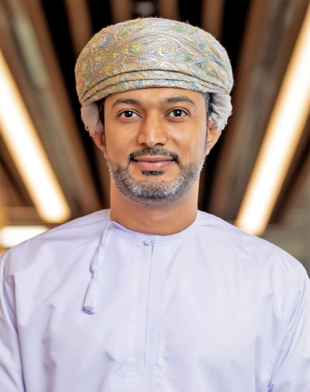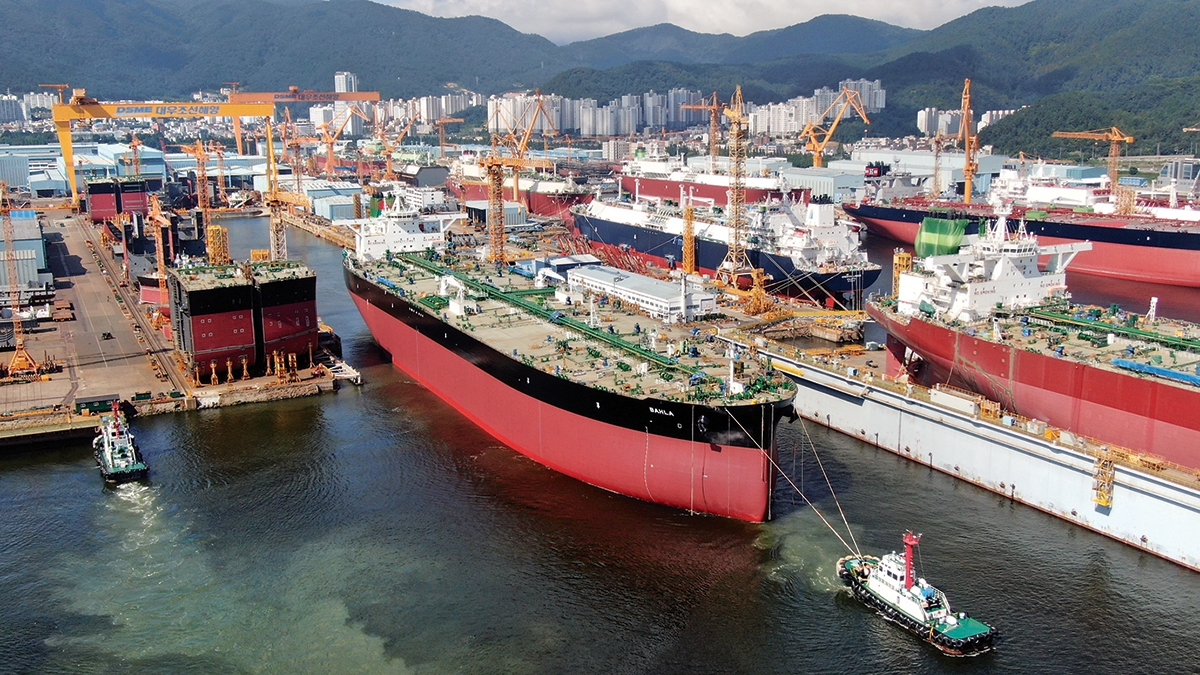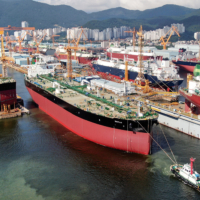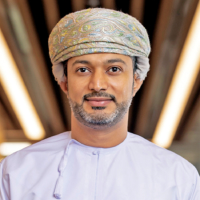Oman is strategically positioned on one of the world’s primary maritime routes that provides a vital passageway for oil and gas tankers, as well as nonoil trade. As part of its economic diversification strategy, Oman has sought to capitalize on its exceptional location by investing heavily in its logistics sector in recent years.

At the forefront of this investment is Asyad Group, a $4 billion enterprise backed by $20 billion in government infrastructure spending that is already the fourth-biggest logistics company in the Middle East and North Africa, according to Forbes. “In line with the country’s 2040 Vision development plan and using Singapore as our example, Oman is striving to become a top 10 global logistics hub. As the logistics arm of the government, Asyad Group is playing a key part in this effort,” said Ibrahim al Nadhairi, CEO of Asyad Shipping and Asyad Drydock, two integrated units in the group’s portfolio, which also includes ports, economic free zones and logistics services.
Together, Asyad Shipping and Asyad Drydock provide global clients with a full range of efficient and competitive maritime services. Asyad Shipping owns a highly diversified fleet that currently consists of over 60 vessels, which are supported by a sea transport network that connects Oman to 86 commercial ports around the world. This unit is growing rapidly, revealed al Nadhairi: “Within the last two years, we have expanded our chartering services and bought three additional very large crude carriers, seven bulk carriers and a Panamax container vessel. On top of this, we have recently gained approval for an ambitious five-year plan that will add about 35 more ships to our owned fleet.”
Asyad Drydock, on the other hand, operates one of the Middle East’s largest dry-dock facilities, which is located at the Port of Duqm in the south-east of the country. “Our world-class shipyard is only around 10 years old and it has great potential. As well as standard ship repair services, it is also experienced at undertaking complex projects, including ship conversions, scrubber and water-treatment installations, plus other upgrades. We have also started moving into shipbuilding and recently delivered our first steel-hulled multipurpose boat, which was designed and built by Asyad Drydock,” al Nadhairi noted.
The CEO stressed the importance of its partnerships with Japan to the ongoing development of the group. “Asyad Shipping started as a joint idea between the government of Oman and Mitsui OSK Lines (MOL), among others, while the first six ships in our fleet were joint ventures between Oman and Japanese companies, including MOL, NYK Line, Mitsubishi Corp. and Itochu Corp. We also have a good relationship with Japanese banks, which finance many of our projects, and with Japanese insurance companies,” he stated.
An equally important area of cooperation is technology, he added: “We have been using Japanese technology in our ships for many years and will carry on using it. Japan is known for the quality of its technology and that is extremely important to us, as we will not be able to compete or continue to be efficient without investing in first-rate technology. Asyad Drydock and Asyad Shipping are also investing in automating some of our services using technologies related to artificial intelligence, the Internet of Things and big data. We have allocated a large amount of our budget to cutting-edge technologies and believe that Japanese companies will have a major stake in this.”
This report was produced by Global Insight and can also be read here:
https://info.japantimes.co.jp/international-reports/pdf/20220510-GI-Oman.pdf
www.global-insight.net





